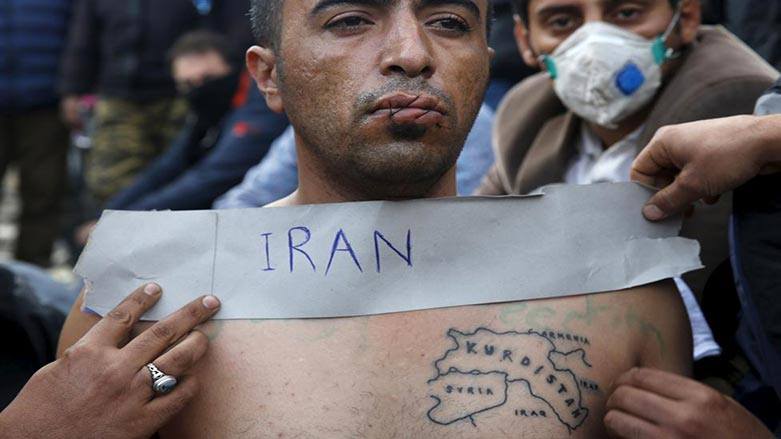How will independence referendum affect Iranian Kurds?

LOS ANGELES, United States (Kurdistan24) - Despite a century of living across different borders, tragedies and victories of one part of the ancient Kurdish land have affected the rest.
Whether in Iran, Iraq, Turkey, Syria or diaspora, Kurds are proud of the 2015 victory of Kobani over Islamic State (IS) and shiver at remembering the 1988 gassing of Halabja or the 1937-8 Dersim massacre.
For a nation who has faced annihilation because of statelessness, independence is an ageless dream, one whose feasibility has long been debated. But this year, the semi-autonomous Kurdistan Regional Government (KRG) announced that an independence referendum is to take place on September 25, 2017
The referendum has internal and external obstacles. Inside the region, parties have disagreements and the government, criticized for corruption, mismanagement and authoritarianism, is just recovering from economic crisis, war with IS, the influx of refugees and IDPs, and federal government’s budget cut.
Western countries—despite their emphasis on human rights and democracy—have fallen short of officially supporting the referendum, calling it an internal matter with Baghdad.
Although the upcoming referendum can potentially bring divided Kurds close to their dream, the turbulent Middle East is no place to offer an oppressed nation their “natural right.”
Hostile neighboring powers of Iran and Turkey whose Kurdish population is suffocating under iron fists openly oppose the referendum.
Iran which has been boasting its widespread influence in the region, mainly in war-torn Syria and Iraq, immediately condemned the move but did not stop there.
Persians’ old strategy of coaxing mixed with intimidating meant they invited the ailing and retired Kurdish leader Talabani to Tehran this week.
But how will the referendum affect Iranian Kurds?
Analyst Sousan Mohammadkhani Ghiasvand believes independence in Kurdistan Region will affect Kurds who have never recognized borders and have fought battles that have not been directly theirs. It is not uncommon to see an Iranian Kurd in Syria fighting IS or a Kurd born and raised in Turkey fight in Iraq.
“It is this very affinity that terrifies Iran which has repeatedly emphasized on Iraq’s territorial integrity,” Ghiasvand told Kurdistan24, noting that during both royal and Islamic governments Kurds have been perceived as a threat.
But the referendum would not only affect the population’s aspiration and the scope of their political demand from the Iranian government, it will have a direct impact on Iranian Kurdish parties too, she said, speaking from Paris.
Based in Kurdistan Region for over three decades, Iranian Kurdish parties until last year had given up armed struggle. If Iran were to strike a deal with Kurdistan Region to allow independence, exiled and dependent parties would be under tremendous pressure.
“The more independent of KRG, the better for the Iranian Kurdish parties and the KRG. But the pressure would be short-term,” she added. “In the long-run independence will positively affect Iranian Kurdish parties as well.”
Emphasizing on the ethical aspects, German-based activist Rahman Javanmardi told Kurdistan24, "Kurds did not volunteer to be torn apart and become part of separate countries. They have suffered extreme oppression, including genocide, at the hands of various governments and deserve independence."
"If justice is brought to Kurds in Iraq, it would affect Kurds everywhere. No one advocates that victims of domestic abuse should stay in their marriage. Why should a nation that has faced annihilation stay with a failing government?" he added.
Journalist Kaveh Ghoreishi also believes that although referendum is mostly an internal matter, its success or failure will affect Kurds everywhere.
"Potentially, the recognition of the country of Kurdistan could organize Kurds in Iran to pressure the central government for greater rights. But the fact is folks aren't organized there at the moment," Ghoreishi added.
"But if the referendum happens and the region fails to become a country, it can make similar aspiration in other parts of Kurdistan much harder to achieve," he told Kurdistan24 from Berlin.
Ghoreishi pointed out that the naming of the country after it achieves independence will also be significant.
"Iran and Turkey would not allow it to be called 'Southern Kurdistan' [as Kurds informally call Kurdistan Region Bashur] and yet naming it Kurdistan would mean a portion of Kurds would have a monopoly over the name," he concluded.
Looking at the other side of the coin, Stockholm-based journalist Pouya Azizi said although the success of the referendum can revive meaning and hope for Iranian Kurds who enjoyed their own short-lived Republic in 1945, it can also lead to increased suppression from the Iranian government.
"Depending on power balance in the region, Iranian government may have to bow to some Kurdish demands in its own land or simply increase pressure," Azizi told Kurdistan24, pointing to the ever-changing nature of the Middle East.
Kurds who in the past three years have achieved global recognition for fiercely battling and defeating IS extremists are getting closer to a historical event that can alter their future for good, putting them on the map, offering them an official existence.
Despite initial hesitation, government opponents seem to realize that Kurdish independence is above party politics.
Iran and Turkey who loudly denounce the referendum have massive economic and political interests in the Kurdistan Region which they cannot easily disregard.
